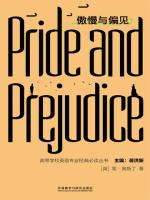chapter4
Claire
# *Pride and Prejudice* Chapter 4 Book Review Chapter 4 of *Pride and
Prejudice* serves as a pivotal character study, shifting the focus from
the public spectacle of the Meryton assembly to the intimate
conversations that deepen our understanding of Elizabeth Bennet, Jane
Bennet, and the societal forces shaping their lives. After the charged
first encounter between Elizabeth and Darcy in Chapter 3, this chapter
uses sisterly dialogue to explore the novel’s central themes of first
impressions, emotional restraint, and the tension between personal
ideals and social expectations—laying the groundwork for the emotional
arc of the story. The chapter opens with a quiet, domestic scene:
Elizabeth and Jane discussing the events of the previous night. This
shift from public to private allows Austen to contrast the sisters’
personalities and worldviews in a way that feels authentic and
revealing. Jane, ever the optimist, defends Darcy’s behavior at the
assembly, suggesting his reserve might stem from shyness rather than
arrogance: “Perhaps he has not so lively a turn as Mr. Bingley.” Her
gentle nature leads her to give others the benefit of the doubt,
reflecting her belief in inherent goodness. Elizabeth, by contrast, is
more skeptical, clinging to her initial impression of Darcy’s pride.
Their conversation isn’t a debate but a mutual exploration of differing
perspectives, highlighting the strength of their bond—each respects the
other’s viewpoint even as they disagree. This dynamic foreshadows a key
theme: the novel’s exploration of how personal biases shape our
understanding of others. Austen uses this dialogue to subtly critique
the social expectations placed on women. When Jane expresses her delight
in Mr. Bingley’s attention, she also worries about appearing too
forward: “I am afraid of being too much pleased.” This moment
underscores the delicate balance women of the era had to
maintain—showing interest in a suitor was necessary for marriage
prospects, but excessive enthusiasm risked being labeled “immodest.”
Elizabeth, more rebellious, dismisses such concerns: “You must be
allowed to be the best judge of your own happiness.” Her words hint at a
desire to prioritize personal connection over social conventions, a
trait that will define her throughout the novel. Meanwhile, their
mother’s offstage interruptions (Mrs. Bennet’s excitement about the
Bingley connection) serve as a foil, contrasting the sisters’ thoughtful
reflection with her impulsive, marriage-obsessed pragmatism. The
chapter also deepens our understanding of the Bingley-Darcy
relationship. Jane shares Bingley’s praise of Darcy as “a most valuable
friend,” revealing Darcy’s loyalty and influence over his wealthier
friend. This detail complicates Darcy’s character: while he appears
aloof to others, he holds a trusted position in Bingley’s life. Austen
plants the seeds for future conflict—Darcy’s opinions will later impact
Bingley’s relationship with Jane, demonstrating how personal judgments
can have far-reaching consequences. Elizabeth’s skepticism about Darcy’s
character remains, but the reader begins to see the nuances: Darcy’s
“pride” isn’t simple arrogance but a complex mix of social awareness and
personal reserve. A key strength of Chapter 4 is its use of free
indirect discourse. Austen blends the narrator’s voice with Elizabeth’s
thoughts, letting us experience her inner world. When Elizabeth reflects
on Darcy’s behavior, we feel her mix of amusement and irritation: “His
pride did not offend her; it was rather a matter of ridicule.” This
technique makes Elizabeth relatable—her flaws (her stubbornness about
first impressions) are as clear as her strengths (her wit and
independence). Meanwhile, Jane’s gentle optimism is conveyed through her
dialogue, making her a foil not just to Elizabeth but to the more
cynical characters in the story. The chapter ends on a note of hope,
with Jane and Elizabeth anticipating future interactions with the
Bingley party. Yet, the lingering tension around Darcy’s character
creates a subtle undercurrent of suspense. Austen leaves us wondering:
will Elizabeth’s prejudice soften? Will Jane’s optimism be rewarded? The
simplicity of the chapter—a conversation between sisters—belies its
importance: it’s where the emotional stakes of the novel become clear.
Austen isn’t just telling a love story; she’s exploring how personal
growth and self-awareness unfold in a world governed by rigid social
rules. In short, Chapter 4 is a masterclass in character development.
Austen uses a quiet, dialogue-driven scene to deepen our connection to
the Bennet sisters, complicate the central conflict, and reinforce the
novel’s themes. It’s a reminder that *Pride and Prejudice* is as much
about inner transformation as it is about romance—and a perfect example
of why this novel has endured for generations.



 京公网安备 11010802032529号
京公网安备 11010802032529号